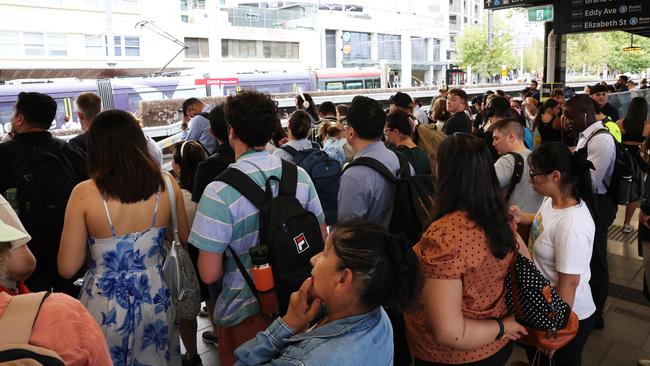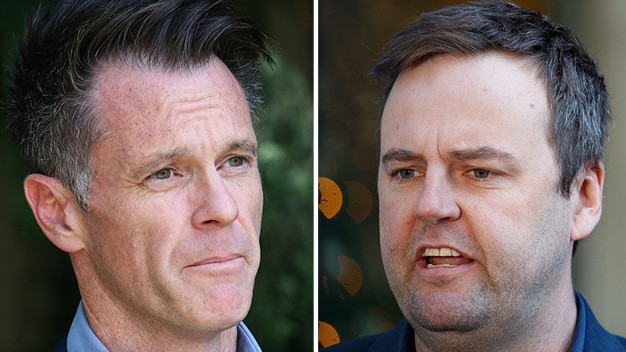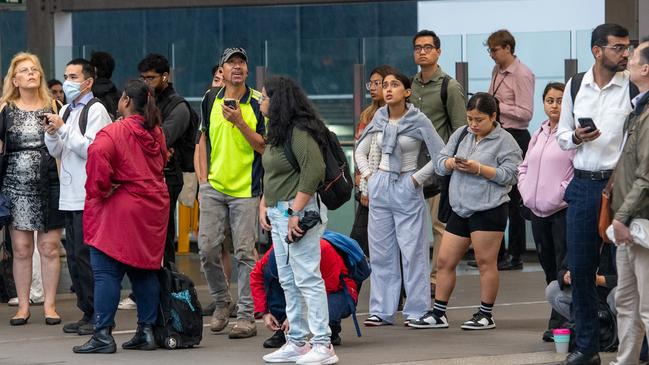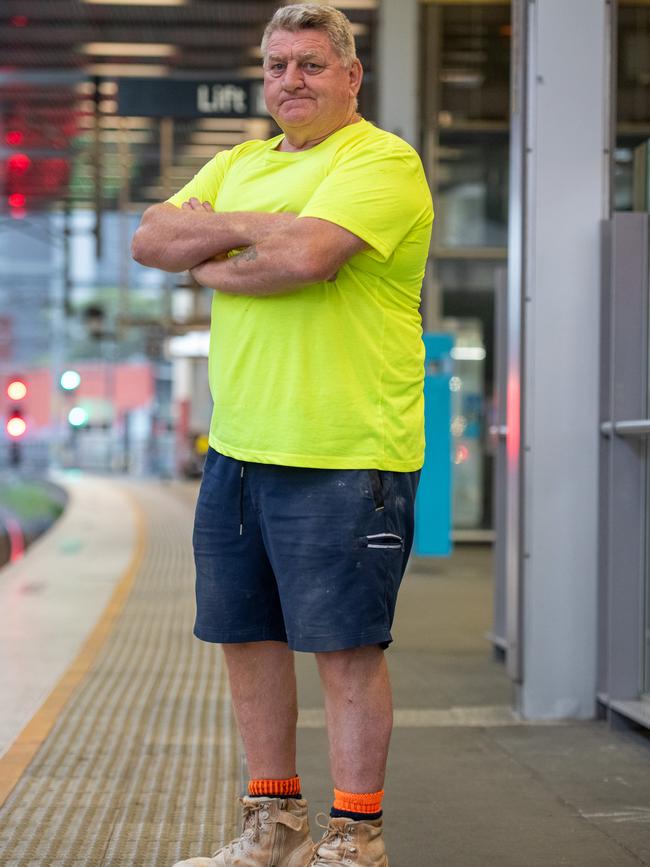Train pain reprieve for a week before Fair Work Commission hearing
Sydney’s train network had a tentative return to business-as-usual on Friday morning after the Fair Work Commission ordered unions to temporarily stop widespread strike disruption.

NSW
Don't miss out on the headlines from NSW. Followed categories will be added to My News.
Worn-out commuters were spared more chaos after NSW Premier Chris Minns launched legal action against the rail unions at the Fair Work Commission, which ordered they stop all strikes for at least a week.
While frequent services have been running, commuters have been told to brace for ‘slight delays and cancellations’ as the network recovers.
As of Friday there are still 50 speed restrictions in place, a Transport for NSW Spokesperson stated with latest advice stating commuters should avoid all non essential travel and allow extra time.
Presently most significant delays will be felt by those travelling on the Central Coast and Newcastle line due to missed maintenance work at Gosford.
Train replacement buses will continue between Wyong and Hornsby until 1:15pm.

Fed up with Sydneysiders being “held to ransom”, Mr Minns sought an urgent intervention from the commission on Thursday in a bid to halt the industrial action that has ground the city’s rail network to a halt.
Fair Work Commission president Alan Hatcher last night made an interim order, which came into effect from 6.30pm, that ceased all industrial action until the matter could return to court next week for a two-day hearing when all the evidence could be adequately heard.
In revealing the legal action, a defiant Mr Minns said the economic impact of this week’s strikes was “incalculable”, while incensed commuters urged the government and unions to “sit around a table and do something”.
Commuters continued to endure severe disruption on Thursday, with Transport for NSW estimating more than 1000 train services were cancelled.

The government submitted to the commission a 424 application, which, if accepted by the court next week, will force the Combined Rail Unions to permanently stop its protected industrial action.
Instead, they will be forced into arbitration with the government to determine an outcome of the pay dispute.

The success of the government’s application will hinge on its ability to prove the industrial action causes significant economic harm or will endanger the safety of the public.
Should the Fair Work Commission find in favour of the unions, they will be entitled to continue with their chaotic calendar of industrial action.
Accusing the rail unions of placing a “noose” around the transport system, Mr Minns said the economic damage done to the state was too big to measure.
“We don’t know how many small businesses have been smashed as a result of 50 per cent of train services operating – it’s not possible for the government to collect all of that data,” he said.
“Scenes last night of people scrambling to get home from the station in the face of an oncoming storm, give you all the evidence that you need that this industrial dispute has gone on long enough.”
Business Sydney executive director Paul Nicolaou said modelling from a weekend shutdown threatened by rail unions last November suggested current strikes could cost tens of millions of dollars.
“We estimated that (shutdown) would impact over 1.5 million trips and that the total loss of economic activity to the state would be at least $50.7 million,” Mr Nicolaou said.
Passengers catching trains along the T1 Western and Northern suburbs line faced delays of nearly four hours, while those on the T2 Leppington and Inner West line faced delays of nearly five hours. Trains on the Blue Mountains line were delayed by up to two hours.
Angry commuters took aim at the government and unions for not coming to an agreement.
Long delays forced Pendle Hill bricklayer Joe Drain to call off his workday after only being able to make it as far as Lidcombe station.
“If you don’t get (to work) in time then you get docked,” he said.

The Rail, Tram and Bus Union labelled the government’s “bogus” 424 application to the court “a cheap political trick”.
“Instead of negotiating, the government is scapegoating rail workers, blaming them for economic disruption they themselves caused,” it said.
Transport Minister Jo Haylen publicly announced on Tuesday the government’s “final” wage offer to rail workers of 15 per cent, which the union has indicated its members will reject.
Opposition leader Mark Speakman said commuters were caught between “a ruthless act of bastardry” by the rail unions and a “weak government.”
“The government has allowed this dispute to fester for eight months and it’s only now that they’re doing the right thing and taking the union to the Fair Work Commission,” Mr Speakman said.
Meanwhile, the federal government is refusing to step in to stop industrial action.
Under federal legislation governing the rail unions, Industrial Relations Minister Murray Watt has the power to terminate protected industrial action that led to Wednesday’s network-wide meltdown.
The legislation allows the minister to terminate industrial action which threatens to endanger the life, health, safety, or welfare of parts of the population, or threatens significant economic damage.
It’s understood such a declaration would be unprecedented.
But, as the network buckled under pressure of union work bans and horrendous weather yesterday, Opposition Workplace Relations spokeswoman Michaelia Cash accused Prime Minister Anthony Albanese and Mr Watt of being “too gutless” to intervene.
Ms Cash said that despite the Prime Minister’s power to end the chaos, it was unlikely he would do so out of fear of upsetting the unions.
“Anthony Albanese won’t get involved because the union causing the chaos, the RTBU, support the Labor Party – they’re his allies,” she said.
Do you have a story for The Daily Telegraph? Message 0481 056 618 or email tips@dailytelegraph.com.au
More Coverage
Originally published as Train pain reprieve for a week before Fair Work Commission hearing




